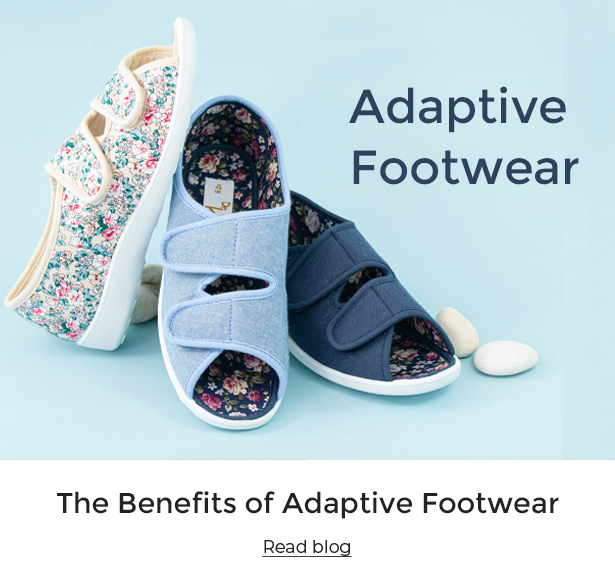The Benefits of Adaptive Footwear

As our bodies get older, they also get weaker. Aging brings with it changes, some good and some bad. Instead of resisting change, it makes sense to work with it to get the best results, both for you and out of the clothes you wear. Adaptive shoes play a vital role in enhancing your quality of life, especially if you suffer from any medical conditions or are a senior. Here is our guide to how adaptive footwear can help you as your body changes.
Slip proof
If you are prone to trips or falls, it is nice to know that your shoes will not add to that risk. Most adaptive shoes are slip proof, reducing the risk of falling. That way, you can go about your day with peace of mind, knowing that you don’t have that additional risk of injuring yourself.
Comfort
One of the biggest positives when it comes to adaptive footwear is the level of comfort they provide. Adaptive shoes are, by name, adaptable, so they mould to your feet rather than the other way around. Some come with laces, and others come with Velcro straps to make it easier to take them on and off. This provides senior or disabled people with a sense of independence and means they can still have some of the same freedoms they are used to, just adapted to their current needs.
Width
Adaptive footwear is usually wider to accommodate the need for more foot room. For people with medical conditions like bunions or swollen, sensitive feet, the ability to adjust width on your shoes is a godsend. This maintains the same level of comfort whenever you wear your shoes, even if your feet are in a constant state of change.
Sole
Most shoes have a hard sole, with not much support and not much padding. Adaptive shoes consider how sensitive feet can be, instead opting for soles that may be made from materials like memory foam, so that they mould to your feet. The additional cushioning and padding help to soothe feet without them becoming tired, allowing you to get on with your day comfortably.








